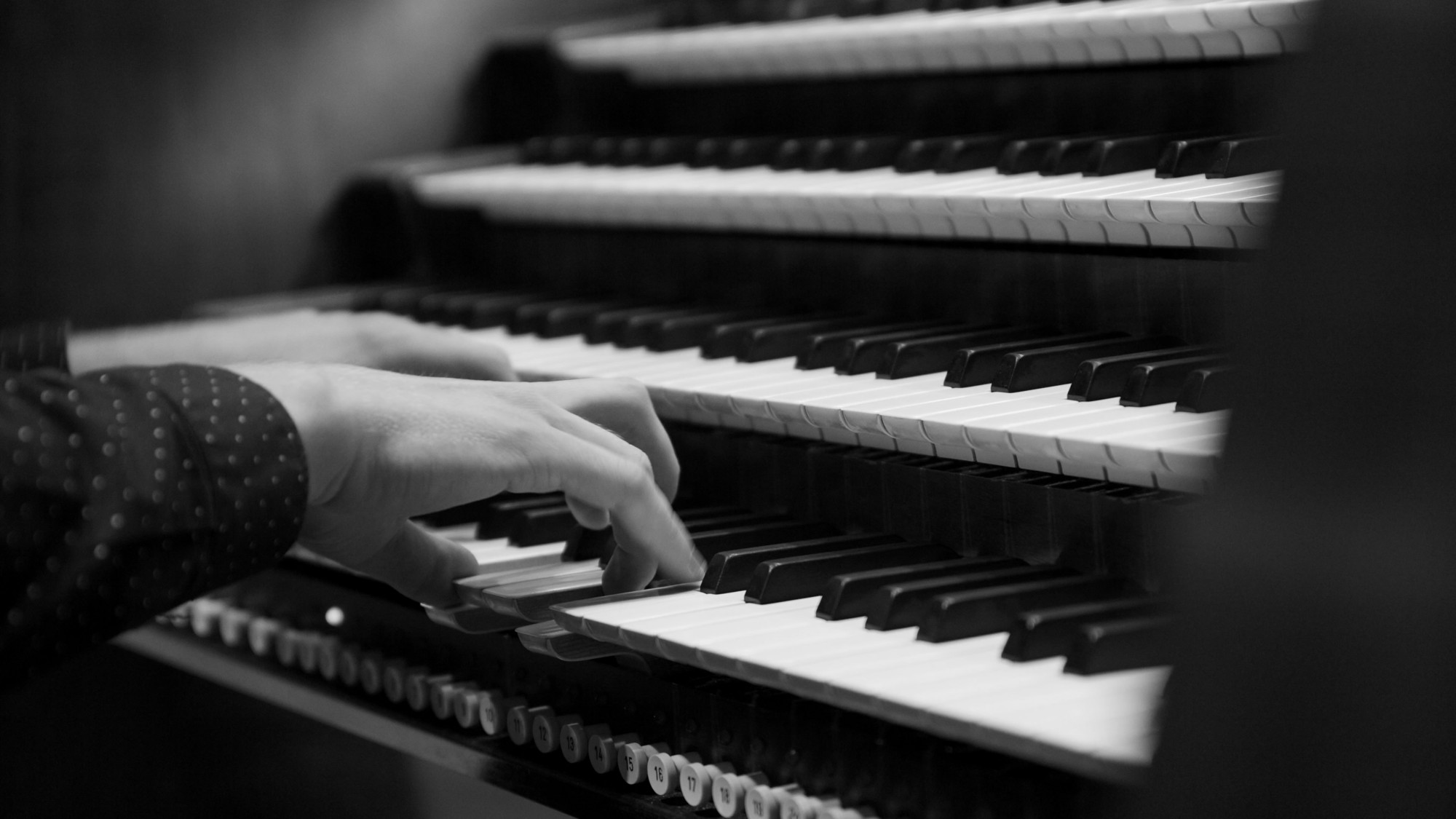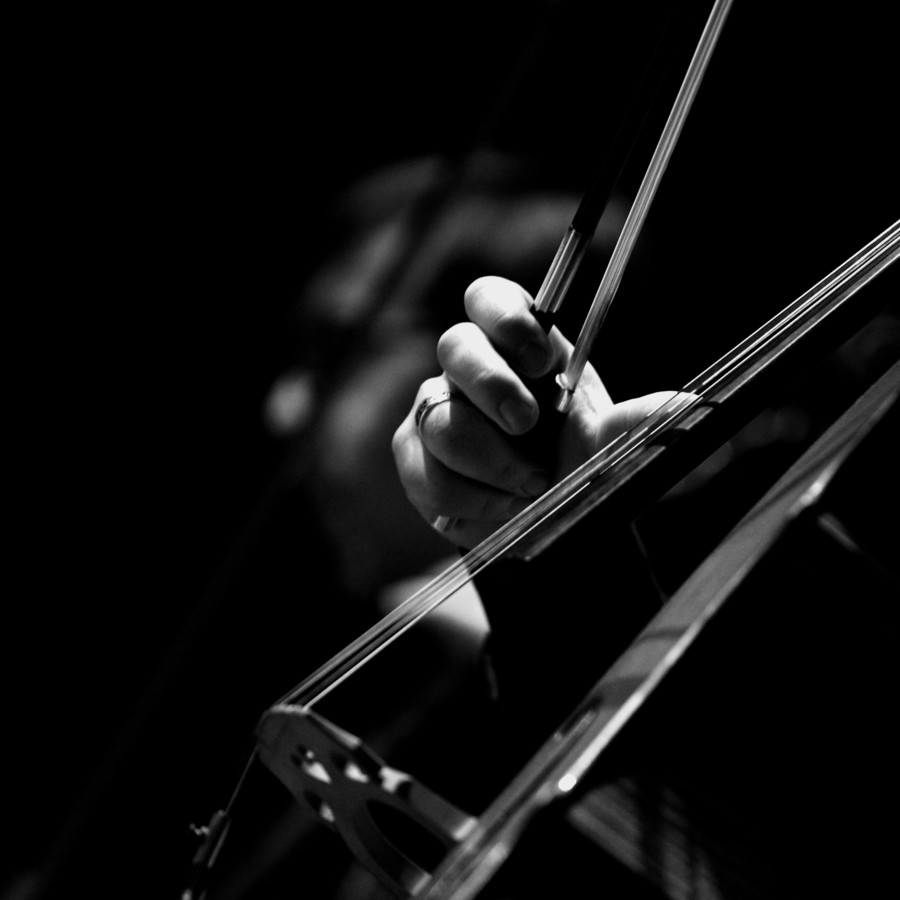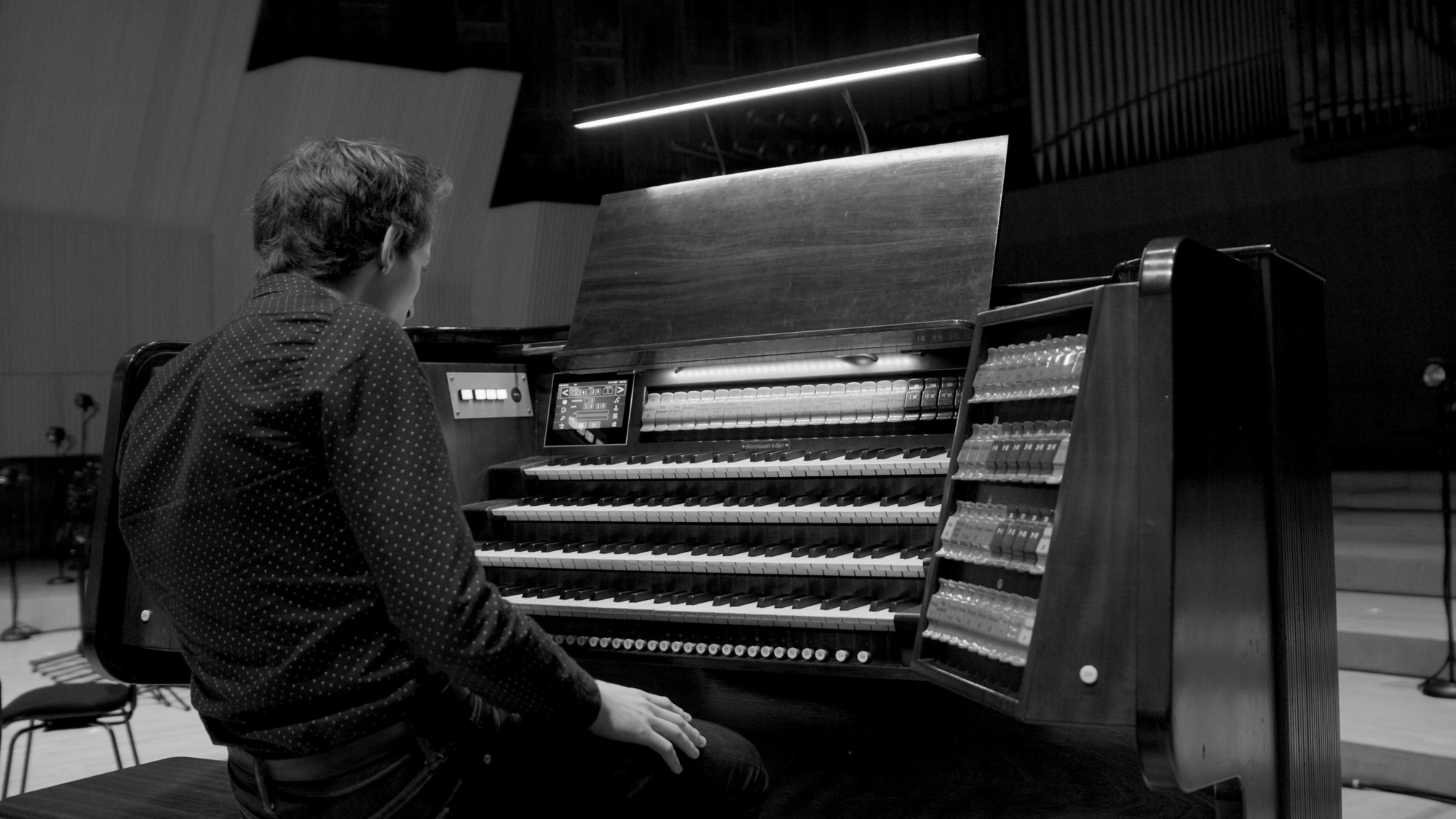
Organ and church music
On the programme in organ and church music you will develop your musical talent in both solo organ playing and liturgical organ playing. You must be driven by your fascination with the organ as an instrument, but also be prepared to enter musical contexts where the organ is used in interaction with other instruments, such as in chamber music.
When you study organ and church music at RDAM, you are trained to take on the highest organist positions in the Danish public church. You will hone your improvisational, artistic, and technical skills, and you will acquire a high level of theoretical knowledge.
We expect your basic playing skills and theoretical knowledge to be in place when you apply for admission. Many prepare at the MGK or by receiving tuition at a church music school.
Teaching
Liturgical organ playing with improvisation is an important part of church music education. It also includes team teaching in liturgy and hymnology. Solo organ training trains your artistic and instrumental level and is organised according to your talent, prerequisites and needs.
Theoretical instruction is relatively extensive for organists because an understanding of movement technique, various forms of chorale harmonization, and arrangement of your own movements, etc., is the foundation for liturgical organ playing, which requires you to master a high degree of improvisation. You will also receive instruction in piano, harpsichord, and continuo, so that you are equipped to play chamber music.
A small part of your teaching will be in larger classes. You'll have choral conducting with students from the Music Teacher Training programme, and in general subjects such as ear training and music history, you'll be taught alongside students from across the other training streams.
Study environment and collaborations
There are approximately 20 students on the Organ and Church Music programme, and there is a good community across year groups. The study environment is international and although we are different, we share the same passion, and everyone talks to each other and enjoys studying together.
The teachers on the programme are all performing organists with their finger on the pulse, and during the academic year we hold a number of masterclasses with high-profile organists from around the world alongside the teaching.
We play concerts at DKDM, but also out in the city's churches, where you will be challenged by exciting organs created to play Romantic music, Baroque music or Renaissance music.
At RDAM we have a fine organ collection, which is used for practice and for concerts. We have different types of organs, so we can meet different repertoire challenges, and of course we also have the large organ in the Concert Hall.
Career
On the Master of Music (church music – organ) you can specialise in five different directions: chamber music, early music, choral conducting, children's choir, rhythmic organ, depending on where your particular interests lie.
The Master's programme qualifies you to apply for the highest organist positions in major churches around the country. Organists are needed in Denmark and there is currently full employment and a shortage of trained organists in churches.After graduation, some students continue to soloist training, where you are trained as a soloist at the very highest level.
Study programmes
Earn your music degree at The Royal Danish Academy of Music

The Royal Danish Academy of Music in Copenhagen offers music education at the highest level. The wide range of courses at the Academy attracts a diversity of students, thereby creating an international study environment.
